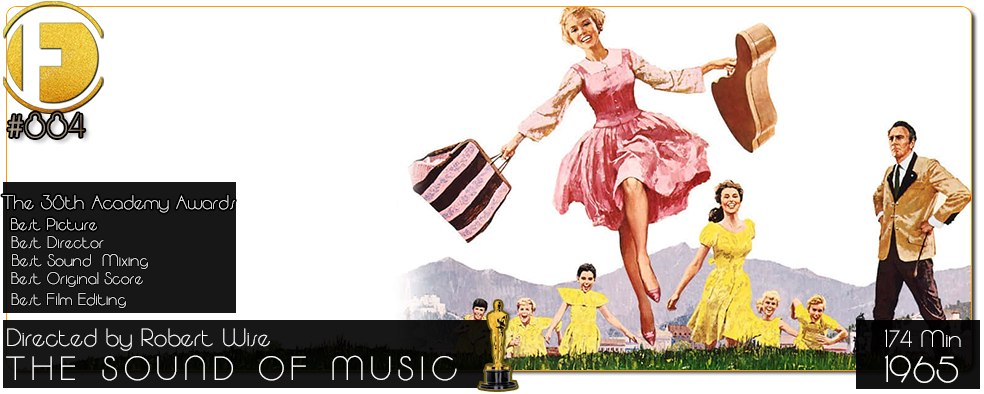Movie Review – Sound Of Music, The
Principal Cast : Julie Andrews, Christopher Plummer, Eleanor Parker, Richard Haydn, Charmain Carr, Nicholas Hammond, Heather Menzies, Duane Chase, Angela Cartwright, Debbie Turner, Kym Karath, Peggy Wood, Anna Lee, Portia Nelson, Marni Nixon, Daniel Truhitte, Ben Wright.
Synopsis: An ex-nun and her widowed lover hide behind his children to face down some Nazis. Oh, and they sing.
*******
One of my favourite things.
Ever been in a bad mood? Ever had a really crappy day, and need a little pick-me-up to make things better? Instead of sticking on Teen Moms or the umpteenth series of Survivor, perhaps I could recommend a little film called The Sound of Music instead. What’s that? You’ve never heard of this film? F@ck off, everyone’s heard of The Sound Of Music. Huh? Never seen it? Consider this your education, my friend. The Sound Of Music is one of the greatest – if not the greatest – film musicals in all of Hollywood history. Pound for pound, song for song, it’s easily the most memorable, and remains among the most commercially and critically successful of its type ever filmed. It out-box-officed Gone With The Wind, that’s how successful this thing was. Every little girl who grew up, every showman who ever dreamed of producing a Broadway production, every nun who dreamed of singing to children; this film transcends all boundaries of race, creed, and social topography, remaining as toe-tapping joyful as it was on initial release. It’s just so joyful, so simply majestic in its uplifting, positive manner and tone, you can’t help but be carried away to the Austrian alps alongside Maria, the Captain, and all those adorabubble children.
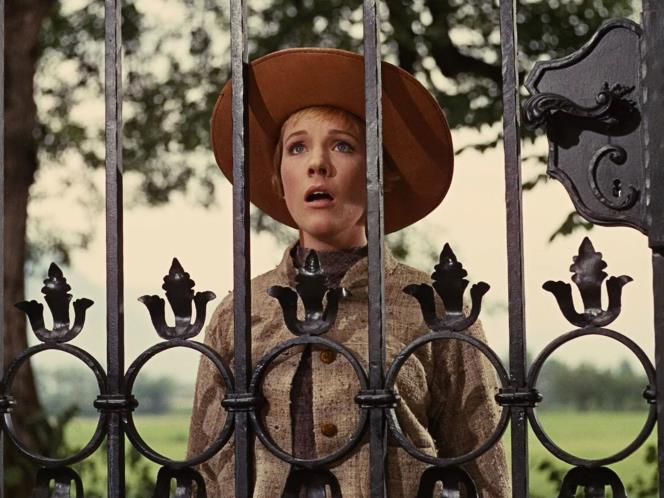
1938 Austria – the world is on the cusp of another great war, the shadow of the Nazi menace lurking in every dark corner of Europe. In Salzburg, a young nun, Maria (Julie Andrews) is sent to the home of a former naval captain, the widower Georg von Trapp (Christopher Plummer), to look after his seven children. Georg treats his children like his sailors- regimented and conformist, whereas Maria shows them how to have fun, and be children. Naturally, Georg and Maria find themselves at odds, made even more so thanks to Georg’s romantic interests in the Baroness von Schraeder (Eleanor Parker), who is accompanied by local impresario Max Detweiler (Richard Haydn) on a search for a local troupe of singers to fill a spot at his next concert. As Maria works her magic on the children, and they work their magic on their father, the scourge of Nazi tyranny threatens to tear them apart as Georg is seconded to the new German military (against his will); their only chance, a desperate flight across the Austrian border to escape pursuit.
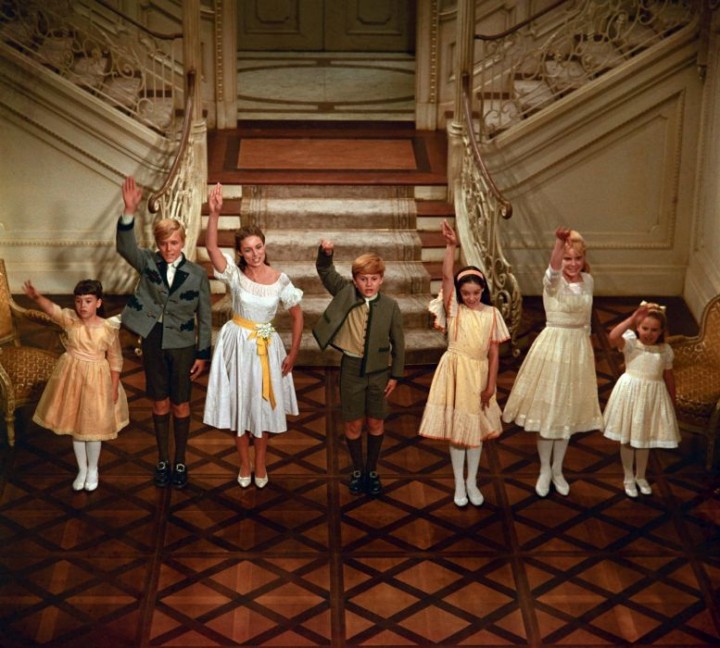
The Sound Of Music came to the stage for the first time in 1959 (making it 55 years old this year!), and with its incredible success came Hollywood a’knockin’. No less than 6 years from debut, the film version landed on cinema screens around the world, to amazing acclaim and popular attention. Filled with more hummable tunes than any other Rodgers & Hammerstein production to that point, most of the songs quickly became standards for any song repertoire, and remain so this this day. Songs like “Do Re Mi”, “My Favorite Things”, “I Am Sixteen” and “The Sound Of Music”, in particular, have echoed down through the generations to the point where the film, regardless of it’s historical accuracy or even its dis-similarities to the original Broadway production, has entered the very DNA of Western culture to the point where we tend to associate Salzburg, Austria, and even the genre of musical film, with this one. It’s iconic, such is its allure as a cultural phenomenon.
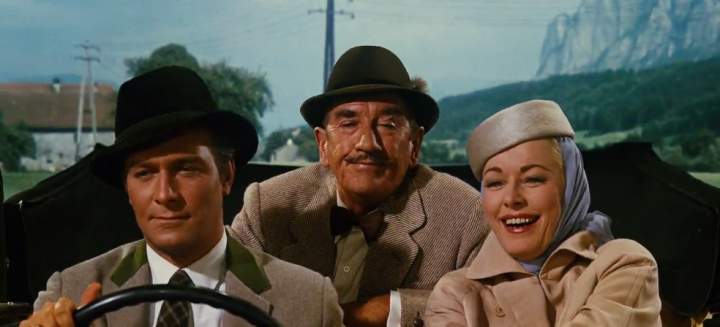
It’s well known that The Sound of Music is based on the real story of Maria von Trapp and her family’s escape from Austria just after the Anschluss (the annexation of Austria into Nazi Germany just prior to World War II), although much of what transpires in the film is a fairly fantastical version of the real events. That doesn’t detract from what is pure Hollywood glitter, this film’s joyous, effervescent humour, sense of occasion, tone and overarching moral core making for delightful cinematic storytelling that you can’t help but be swept away in. The screenplay by Ernest Lehmann at first feels fairly simplistic, almost condescendingly childish, but through sheer charm and guile by both director Robert Wise and the pitch-perfect cast, the film soars. Taking into account some minor historical inaccuracies, The Sound of Music takes a dark period in both world history and the family history, and filters it through the R&H songbook with a comfort and ease that cannot be overstated.
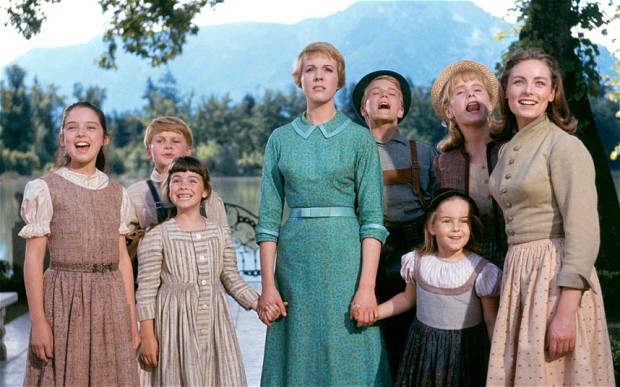
The arc the film employs is pretty standard for musicals. Open light, provide context for the characters, sing the pants off the audience, introduce an antagonist to be overcome (in this instance, Nazi Germany represented by the sharp-faced Ben Wright as Herr Zeller), and have the main characters overcome their problems through song before resolving things with a cheery disposition to send the audience out into the street with a smile. The Sound Of Music will certainly do that; it’s no spoiler to say that Maria and Georg’s journey as romantic partners ends up with a wedding, nor is it giving away trade secrets to say that the Nazi menace in the film is held back to fairly late in the proceedings – mainly after the entr’acte. Wise spends the early part of the film developing the personalities and traits of the large cast, with rising superstar Julie Andrews (fresh off Mary Poppins) stepping into the daunting role of Maria.
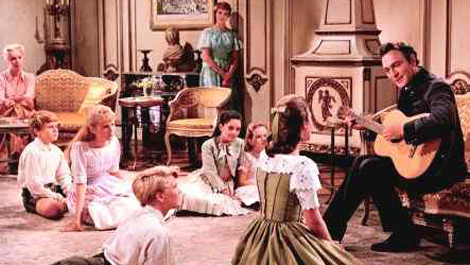
Sometimes you know a film hangs on the performance of a single cast member, they carry a film to its conclusion on the power of their own performance. Julie Andrews, although she might never admit it, is the key reason this film works as well as it does. Her wide-eyed, golden-tonsiled portrayal of Maria, turning her from impish, scatter-brained nun and governess, into a wise, caring, maternal figurehead for the von Trapp children (and love interest for the harsh taskmaster of Georg, who naturally softens as he falls for the ex-nun), and through her transition we come to experience the wonder and excitement of her journey into a new life. Andrews is pure silk when she’s singing, and her natural screen presence with not only Chris Plummer, but the seven children who she shares the bulk of her screen time with, is palpable. Plummer, as the stick-up-his-ass Captain Georg, is magnetic (apparently he didn’t enjoy filming the movie that much, as he found it somewhat trite!), and he is easily the most accomplished (and believable) actor on the screen. His chemistry with Andrews is undeniable. Eleanor Parker does well as the Baroness, who threatens Maria and Georg’s burgeoning feelings for each other, although she wisely knows when she’s beaten – Parker’s scene with the children, as they throw the ball to each other and at her, is still a tremendously sweet moment of awkward unrequited resentment, and although she’s supposed to be “in love” with Georg, theirs is more a business deal than an actual relationship. Richard Haydn, as Max, feels almost too much like a pantomime than an actual character (a note: Max Detweiller is entirely a fictional creation) and at times doesn’t quite fit in with the film from a tonal perspective; Haydn is good in the role, I just don’t think the role is that great. Of all the characters, Max always felt the most…. unneeded, to me.
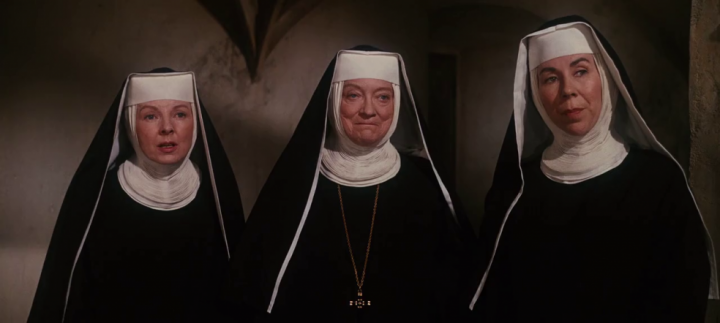
But the charm and brilliance of the film lies with the children. The seven von Trapp offspring, an almost Brady Bunch-style conglomeration of young Austrian Aryan breeding (ha!) are portrayed by a selection of young actors, all with varying degrees of skill and screen presence. Starting at the top – Charmain Carr portrays Liesl, the eldest daughter. Carr has a subplot involving a romance with young Rolfe (Daniel Truhitte), and her enthusiasm and wide-eyed innocence is remarkably sweet, although at times Carr doesn’t quite nail the “dramatic” moments with enough conviction (I’m nit-picking, of course, because none of the child actors are fault-free, but I say ’em as I see ’em…). Liesl’s next sibling, Friedrich (Nicholas Hammond), is bullish but charming, a ratbag leader of the boys, but somebody with a soft streak who only wants his father’s attention. Hammond is fairly stagey with his performance, but still brings a smile to my face just thinking about it. Louisa (Heather Menzies) is the third child, who seems to look up to Liesl as her point of reference for personality; Menzies’ performance watching Liesl and Friedrich dancing during a banquet to celebrate Georg’s engagement to the Baroness, is particularly prescient to her character. Duane Chase portrays Kurt, the fourth child, who was described by a previous governess as “incorrigible”. Chase, perhaps more than any of his young co-stars, has the look of somebody ill-at-ease in front of the camera. He “performs” more than he acts. Angela Cartright, as Brigitta, and Debbie Turner, as Marta, round out the von Trapp children, with Turner particularly “cutesy” as the youngest of the siblings. While both Cartright and Turner are charming in their roles, similarly to their on-screen siblings they smack of being ill-equipped to performing for a camera, as opposed to performing on the stage, where overacting is expected.
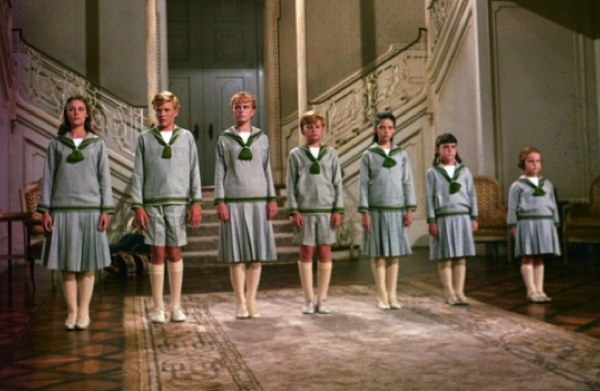
If that sounds entirely mean-spirited, I don’t mean to be. It’s just an observation from a modern perspective. Yes, it’s charming watching the kidlets scamper about Salzburg with Andrews warbling about Do Re Mi and whatnot, but there’s a disconnect inherent in the youngsters performances that removes only the barest of cinematic allure from the story. But you’re not watching this for the dramatic performances of a bunch of children, are you? Nah, you’re here for the songs. And what a list of songs this film contains. Almost every single one, with the exception of… well, without exception, is memorable and evocative – the opening alpine belter, sung by Julie Andrews with that brilliant smile and the backdrop of some amazing mountains to capture your attention, is followed quickly by the bubbly “How Do You Solve A Problem Like Maria” and the equally upbeat “I Have Confidence” – that’s a trio of earworms right there, and a superb way to commence the movie. Scattered throughout are life-affirming odes to love (“I Am Sixteen”), musical theory turned into one of the most memorable montages ever captured by a film camera (“Do Re Mi”), a love song to a whole country (“Edelweiss”), a puppet show (“The Lonely Goatherd” – my personal favourite from the film), a children’s goodnight song (“So Long, Farewell”) and an operatic anthem to freeing your spirit and enduring above all odds (“Climb Every Mountain”): there’s virtually no song in this film that hasn’t become an iconic, indelible, cultural imprint into generations of viewers.
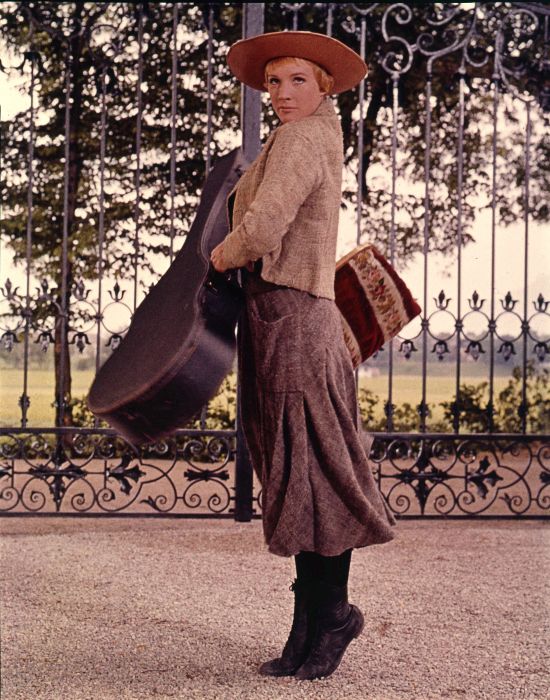
The Sound Of Music is quite simply one of the truly great Hollywood moments. Whether you believe in the stars aligning, lighting being captured at 24 frames per second, or just one of those terrific coincidences, this film is the sum total of musical genius mixed with skilled pop-culture wrangling of the highest order. With Rodgers and Hammerstein’s glorious songs, and a terrific cast – not to mention skilled, technically proficient and lavish production values behind the camera – there’s no film quite like The Sound Of Music. Dazzling, euphoric, enthralling and utterly delightful, it is quite simply the sound of brilliance in almost every single moment.

